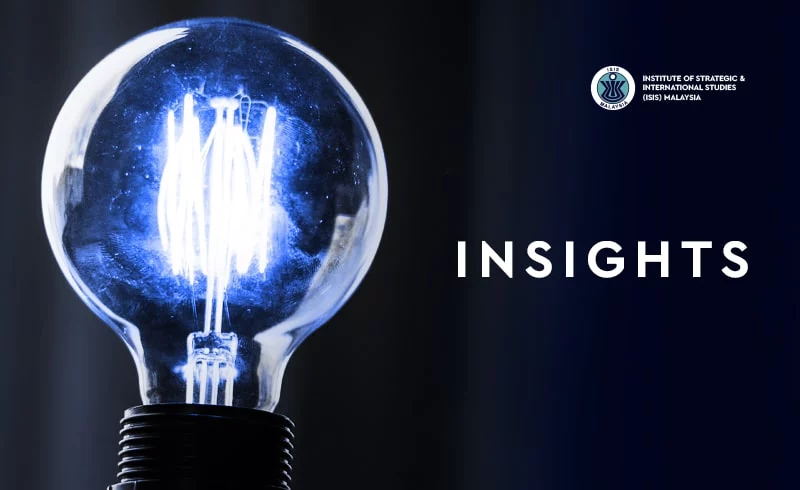Both Indo-Pacific and BRICS+ dynamics deter such a possibility.
By Rahul Mishra and Yanitha Meena Louis
The recent visits of Russian President Vladimir Putin to China, North Korea, and Vietnam attracted a lot of international attention given the Russia-Ukraine conflict and Moscow’s attempt to deal with the consequences of its isolation at the hands of the West. While Putin’s visits to North Korea and Vietnam led to the strengthening of ties between Russia and its Asian partners, it was his recent visit to China that reignited strategic discourse around the “organic and formidable” China-Russia partnership against the West.
The complex and multilayered strategic dynamics of the Indo-Pacific region as well as the expansion of BRICS+ inherently prevent any aggressive outcomes from the China-Russia relationship.
China-Russia relations are often sensationalized in the popular media as an emerging “alliance system” against the West. Such narratives fail to appreciate two critical points: First, the very nature of the China-Russia partnership is not of an “alliance” but a tactical partnership – a “marriage of convenience” where China is the bigger beneficiary.
The strong trade ties between the two revisionist states are also often used as an example of their so-called “iron-clad partnership,” which, again, is misleading. China is the largest trade partner of almost all of the ASEAN (Association of Southeast Asian Nations) member states, Australia, and India, too. China is Japan’s second largest trade partner and still the fourth largest partner of the United States. Strong trade ties do not necessarily make any of these countries a reliable friend to China.
The tactical nature of the China-Russia relationship is manifested in the fact that unlike North Korea, which has allegedly promised to send its troops to the Russia-Ukraine warzone to assist Russia after the two parties signed a strategic pact, China has made no such commitments.
China, as a crucial “transactional partner” to Russia, helps further isolate Moscow from the international community. Despite President Xi Jinping’s cordial interactions with Putin during his visit, the underlying message from Beijing was that the United States should be cautious of the “strong” China-Russia partnership and the emerging multipolar world. China’s strategic engagement with Russia serves its broader geopolitical ambitions, including counterbalancing U.S. influence and promoting a multipolar global order. That said, the Chinese approach to Russia is driven by its self-interest rather than any strong alliance behavior.
Second, such an assessment tends to overlook or downplay Russia’s relations with two very important partners – India and Vietnam – whose national security concerns are partly driven by the China threat. This aspect significantly tempers Russia’s strategic engagement with China.
Despite the perception that Moscow’s ties with New Delhi and Hanoi are deteriorating due to various strategic decisions, including their fast-growing relationships with Washington, the reality is that few international relationships exhibit the enduring stability of Russia’s partnerships with Vietnam and India. Russia’s relationships with both these countries are built on a foundation of mutual respect, historical ties, and extensive cooperation in various sectors, including defense, space, and nuclear energy. A comprehensive assessment of the China-Russia relationship cannot afford to ignore these aspects.
Although India recognizes Russia as the aggressor in the Russia-Ukraine war, it does not support Moscow’s exclusion from multilateral processes in the Indo-Pacific. This stance was evident during the G-20 summit last year, where India’s leadership resulted in the G-20 New Delhi Leaders’ Declaration, which did not explicitly condemn Russia’s actions in Ukraine. (Notably, Xi Jinping did not attend the G-20 summit.) India has also been open to dialogue with Ukraine and helping find a peaceful solution to the ongoing war in Ukraine.
Diplomatically, India holds substantial influence in its relations with Russia, as demonstrated by Indian Minister of External Affairs S. Jaishankar securing a meeting with Putin despite not being his direct counterpart. This underscores the deep-rooted institutional memory and trust that underpin India-Russia relations. Despite strong ties with Russia, India has not let these dynamics affect its ties with the United States and Quad.
Likewise, even Vietnam has made it amply clear that while its ties with Russia are historical and crucial, its partnership with Moscow will not hurt its ties with Washington.
As with all wars, the conflict in Ukraine will eventually end, and Moscow will benefit from remaining active and relevant in the international system – a reality the China-Russia “alliance” cannot provide. Meanwhile, India’s deliberate “inclusion” of Russia in Indo-Pacific discussions is recognized by Russian policymakers.
India’s strategic autonomy and its balanced approach to international relations position it as a key player in maintaining regional stability. By fostering inclusive dialogues and promoting cooperative frameworks, India ensures that Russia remains an integral part of the international community, thus mitigating the potential for a polarized world order. The expansion of BRICS+, with Malaysia and Thailand aspiring to join the grouping, further democratizes the grouping and moves it further away from being just a Sino-Russian club.
Furthermore, Vietnam and India’s engagement with Russia is characterized by pragmatism and mutual benefits. Both Vietnam and India continue to procure defense equipment and energy resources from Russia, ensuring their strategic needs are met. In return, Russia values India’s support in multilateral forums and its efforts to maintain a balanced global order. This symbiotic relationship contrasts with the transactional nature of China-Russia relations, where China’s dominance often overshadows mutual interests.
In conclusion, the China-Russia “axis” is gravely overhyped, and the intricate strategic dynamics of the Indo-Pacific region and emerging dynamics of BRICS+ ensure that any aggressive outcomes from their relationship are tempered.
This article was first published in the Diplomat, 29 June 2024





